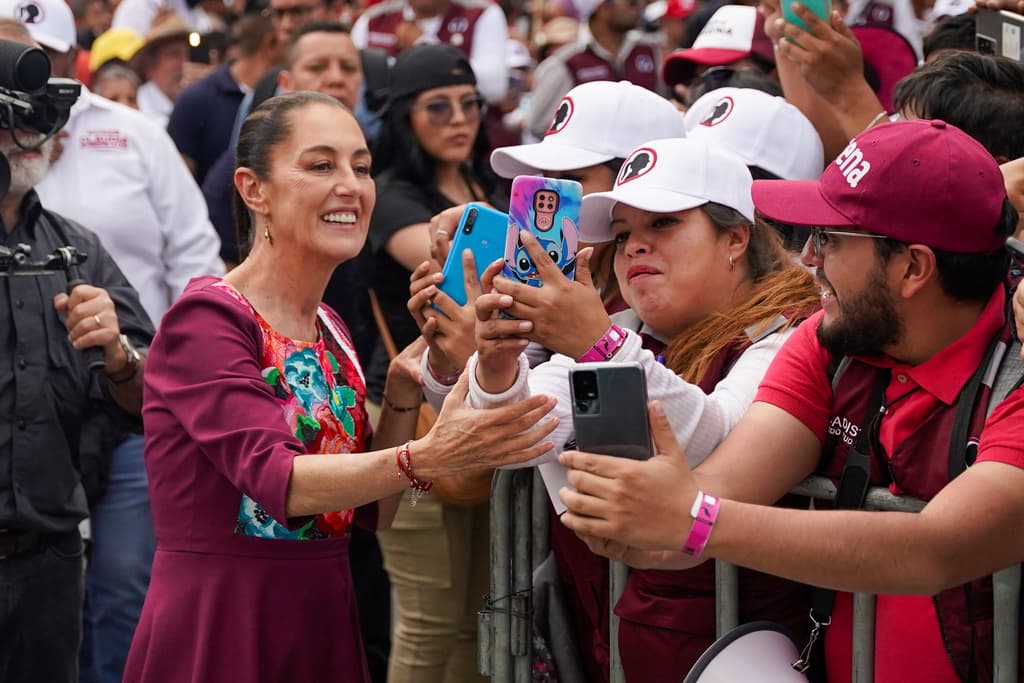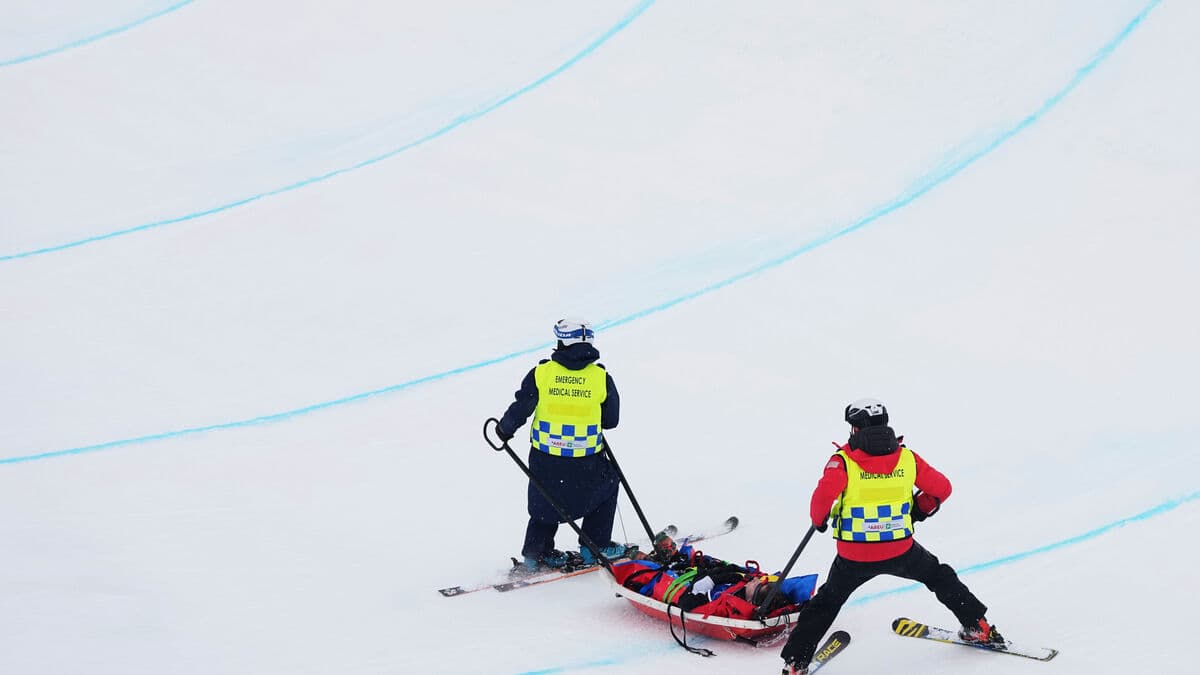Total deaths in violence-related attacks - yet another episode in a national spiral of violence that never seems to end. Crimes and fear are dominant themes in the Mexican election this weekend.
But the woman expected to become the new president believes she can scale up her success formula.
Several of the latest incidents have occurred in Chiapas, Mexico's southernmost state, known for its Maya ruins but also for its great poverty.
Recently, four people lost their lives in an attack targeting Robertony Orozco, a member of President Andrés Manuel López Obrador's party Morena and seeking re-election as mayor of Villa Corzo. Orozco himself was hit by gunfire in the legs but survived, according to media reports from Chiapas.
Just hours later, armed groups attacked Nicolás Noriega, Morena's candidate in Mapastepec, about 10 miles south. Noriega escaped unharmed but five others in his campaign entourage were killed.
This is just a few examples of the wave of violence in Mexico that never seems to end. 2006, when the right-wing Felipe Calderón defeated López Obrador in that year's presidential election, is seen as a turning point - in a negative sense.
Calderón campaigned on order and security. This would be achieved through a literal war on drugs: the military was deployed on a large scale against drug traffickers, who had long thrived on smuggling between cocaine-producing South America and customers in the northern hemisphere.
But the result was that violence, which had been a major problem even for the predecessor Vicente Fox, exploded. The number of murders almost tripled during Calderón's rule, according to the statistics website Statista.
Another way to put it is that around 450,000 people, equivalent to the entire city of Malmö and the entire city of Uppsala, have been killed since Calderón took office at the end of 2006.
The successor Enrique Peña Nieto tried to scale back the conflict, but failed to bring down the violence levels. The failure paved the way for another power shift, as the left-wing candidate Andrés Manuel López Obrador ("Amlo") became president for the third time in 2018.
"Amlo" has chosen a softer approach, offering amnesty to former gang members and social programs to prevent the poor from being tempted into drug trafficking.
The government claims this is successful, even if the murder rates have only slightly decreased so far. And voters seem to believe in the strategy, as his designated "heir" Claudia Sheinbaum is tipped to win this year's presidential election on the promise to continue on the same path.
And unlike the federal government, she has clear credentials on the issue.
Since she became mayor of the massive capital city of Mexico City after the previous election in 2018, she has implemented a "security strategy" that has resulted in a significant drop in crime. For example, murders have halved and car theft has decreased by two-thirds, according to The Economist.
In her campaign, Sheinbaum has now explained how she will apply this strategy on a national level. The points are actually quite straightforward; invest in young people through education, culture, and sports, strengthen the police both in number and quality, and let the entire justice system and other authorities cooperate more effectively to prevent and prosecute crime.
The closest challenger in opinion polls, the Christian Democratic Party's presidential candidate Xóchitl Gálvez, scoffs at this in the presidential debate, saying it can be summed up as trying to "crush" the criminal syndicates.
But Mexicans seem to think they've tried everything else. As researchers describe it, the problems were already rooted in the 20th century, during the long-standing rule of the social democratic PRI, when drug traffickers in relative peace and quiet could grow and infiltrate society. And when right-wing parties later took a hardline stance, it was too late, crime had become too entrenched.
It remains to be seen if Sheinbaum, who would be Mexico's first female head of state, can succeed where all the male predecessors have failed.
This is called a super election for the world, with elections in the EU, India, and the US.
And even the election in Mexico is being trumpeted as the country's largest ever. It is taking place at all levels, from small municipalities to the majority of the congress and the presidency, and involves a total of 20,700 posts.
In Mexico, the president cannot seek re-election. The outgoing president Andrés Manuel López Obrador's party Morena has put forward Claudia Sheinbaum, now the mayor of the capital city, as the candidate. She is leading in the polls, ahead of another woman, Xóchitl Gálvez from the Christian Democratic Party.
Born on June 24, 1962, in Mexico City (Ciudad de México). She hails from Jewish immigrants from Bulgaria and Lithuania.
She studied at UNAM, described as Latin America's largest university, in her hometown, where she became a researcher in environmental science. Known for her knowledge of climate change, and was one of the authors of an IPCC report on climate change published in 2007. During her studies, she met her future husband Jesús María Tarriba, but they did not marry until 2023.
She has been called "the ice queen" by presidential challenger Xóchitl Gálvez due to her calm demeanor.
She was elected mayor of Mexico City in 2018 and began several environmental initiatives to promote green spaces, cycling, and public transportation. The metropolitan area with around 20 million inhabitants is known for extremely poor air quality, largely due to traffic.
Source: AFP






